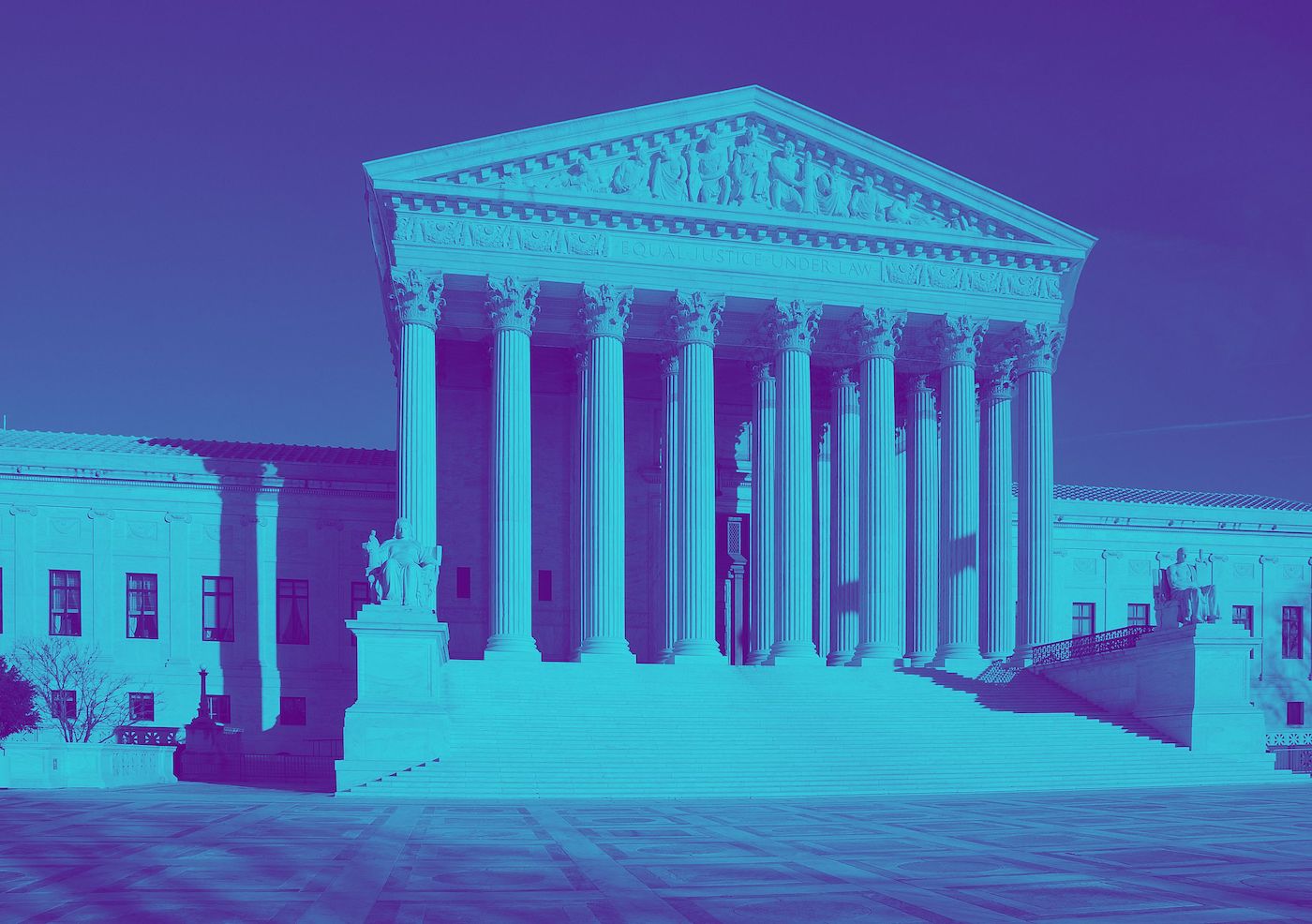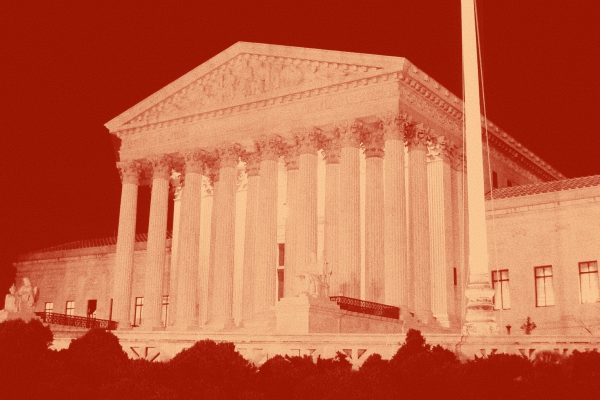Joseph Fishkin and William E. Forbath offer an impressive manifesto for progressives thinking about the Constitution we need now. They look to U.S. historical experience with progressive constitutional change. They offer both a method of achieving that change and the content the authors argue should be pursued. The method is what some have called “political constitutionalism,” in contrast to our current fetishism of judicial constitutionalism; the content is a new political economy.
The manifesto looks to the past for guidance. The authors want to “make progressive politics constitutional again.” They describe a vision “worth retrieving,” and they want to “rebuild the democratic foundations of our republic.” This retrospective language flows from the authors’ attempt—completely successful, in my view—to establish that political constitutionalism is part of the repertoire of thinking and development in U.S. constitutional discourse. Indeed, they contend that political constitutionalism pervaded constitutional thinking until the New Deal, after which a “great forgetting” occurred. To retrieve that tradition, then, is to work within our constitutional heritage, not move outside it.
I’m completely on board with the effort to revitalize political constitutionalism in the United States—that is, with their proposed method. The democracy-of-opportunity tradition combines a political economy with a quest for inclusion that is indeed worth retrieving. But it is also essential to recognize that looking to the past has its limits, and that a narrow focus on oligarchy doesn’t cover all the problems we face. Here I sketch four items, absent from the history Fishkin and Forbath rely on, that should be in a progressive constitutional manifesto for the twenty-first century.
First and most obvious, I think, is an agenda for the environment, including responses to the effects of past and future climate change. I note that their essay only mentions climate change in passing and doesn’t include the words “environment” or even “Green New Deal”—a program that blends a forward-looking concern for the environment with a backward-looking one for workers in today’s industries. Exactly which environmental and climate related policies should be part of the agenda of progressive political constitutionalism is not something legal scholarship can resolve, of course—but I’m quite sure that they must be part of any vision of progressive constitutionalism, and that progressives should spend some of our time discussing and developing a range of options.
This forum is featured in Rethinking Law.
Second, we certainly need an agenda for structuring and regulating the modern information- and service-based economy. The authors argue for reviving the antitrust tradition to deal with mega-corporations in the information economy, for modifying our understanding of the First Amendment to allow regulatory interventions responding to those corporations’ business models, and for restructuring labor law in ways that would allow traditional labor unions to deal with gig employment and more generally the new service economy. All well and good, but I suspect that the political economy of a stable democratic information and service economy will require more creative institutional responses. Unlike workers in traditional industries, gig workers don’t regularly congregate; reaching them to promote collective action has already elicited some ingenious organizational techniques, and more will be needed. The concept of a “normal work week” probably has to be modified to take account of new working modes.
Third, the inclusiveness agenda—grounded in the historical experience first with African Americans and then with women, immigrants, and LGBTQ+ persons—must be transformed. The quest for inclusiveness—perhaps extending so far as non-human animals, too—is far from complete, of course, and perhaps never will be. But as Charles Taylor and many others have forcefully argued, inclusion isn’t the only goal anymore; recognition is. Policies aimed at recognition might include treating multiculturalism as a constitutionally mandated component of the curriculums in our schools and more generally abandoning the “melting pot” understanding of the United States—as a nation where everyone eventually becomes blended into a uniform culture—for a multicultural one, where we each preserve and extend our distinctive cultures while simultaneously recognizing that we are compatriots of everyone else. Again, more important than any specific policy recommendation is a commitment to conceiving of recognition as a matter of constitutional concern.
Finally, I revert to a historical perspective to note that an important strand in political constitutionalism has always sought reforms of existing institutions: expansion of the franchise, direct election of senators, mechanisms of direct popular governance such as the initiative, referendum, and recall—all were important parts of the Progressive agenda in the early twentieth century. Sometimes these institutional reforms were aimed at overcoming obstacles existing institutions placed in the path to enactment of progressive substantive reforms; sometimes they were sought to deepen democracy itself. What institutional reforms might be part of today’s progressive agenda?
Now we are in my wheelhouse, and I can be a bit more expansive. Though their focus on political constitutionalism understandably leads Fishkin and Forbath to forgo substantial discussion of Supreme Court reform, some Court reforms might promote political constitutionalism. I’ve suggested, for example, enactment of a statute, modeled on Scandinavian constitutional provisions, that would direct the Court to invalidate national statutes only if they were “manifestly inconsistent” with the Constitution. (I feel compelled to add that fleshing out this proposal requires more explanation and justification than I can offer here.) Substituting direct election of the president for the current system using the Electoral College is another reform that ought to be on the table, already with quite substantial popular support.
Beyond that lies a wide range of possible innovations in democratic governance, many of which have been tried on a small scale in the United States and elsewhere. I’ll mention my own hobby-horses, but I’m far more interested in having progressives discuss democracy-enhancing reforms than in insisting that these particular three innovations must be part of the contemporary progressive constitutional agenda.
1) Deliberative polling with law-making effect. The technology of “deliberative polling”—which brings together a diverse group, presents them with detailed information about a policy issue, and lets them hash out their differences to come up with some resolution—is now reasonably mature. So far it has been used mostly to generate advice to legislatures, sometimes to shape agendas for referenda. There’s good reason to believe that deliberative polling can generate policy outcomes that are both better substantively and closer to what an informed public would prefer than the ones produced by representative legislatures. Representatives are elected on general party platforms, strike deals across policy areas, and respond to influences from campaign donors and lobbyists. All this can be excluded from a well-designed deliberative poll.
2) Injecting random selection into representative bodies. We trust randomly selected jurors to make decisions with vast personal and financial consequences. Recently scholars have made that case that random selection of legislators—or at least random selection of some legislators—makes sense too. Ordinary people can bring a perspective to important questions of public policy that professional politicians can’t, especially because politicians, whatever they come from initially, almost inevitably become part of an elite that stands apart from the people whose lives their decisions affect. Belgium has taken some tentative steps in this direction by creating “deliberative” committees that include randomly selected citizens who sit with elected members to present proposals to regional parliaments.
3) Decentralizing some important questions of public policy. In Seeing Like a State (1998), political scientist James C. Scott showed that on some questions, decision-makers at the center simply know less about what policies would promote valuable goals than ordinary people at the periphery. Bureaucrats at the center directed that trees be planted in orderly rows to facilitate record-keeping; people on the ground knew that sustainable forests were disorderly and included scores of different kinds of trees. Having policy made at lower than national levels, even down to our neighborhoods, might often be better for the nation as a whole. Details matter, of course: it’s hard to see how an effective system of paying for health care could be organized locally, and exclusionary housing policies famously result from decisions by local homeowners. Saying that decentralization isn’t a universally desirable practice, though, isn’t to say that it can’t be done and used for progressive goals. Here, too, creative progressive thinking about local governance seems to me valuable.
Again, the point is not these three—or indeed any particular—reforms must be part of the progressive constitutional agenda for the coming century. Fishkin and Forbath are quite right in saying that progressives should retrieve the tradition of political constitutionalism they so clearly describe. But as we develop such an agenda, we should think about what distinctive institutional changes will be required in the future in order to promote the reconceived democracy of opportunity.








